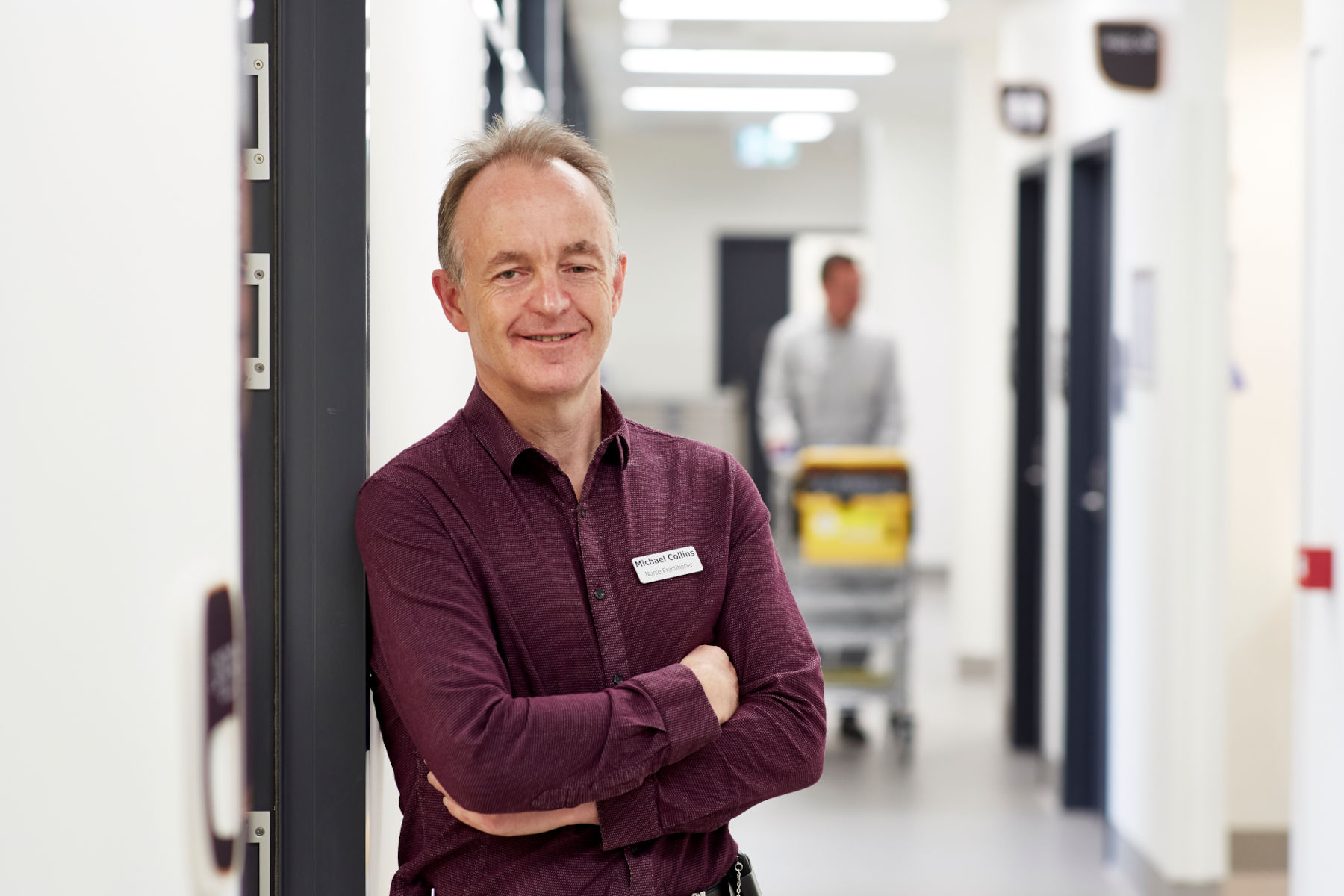Nurse Practitioner Michael Collins studied to be an accountant before making the move into oncology 30 years ago.
After training in a small country hospital and then working in different health services across Australia, Michael joined us 15 years ago, starting as an Associate Nurse Unit Manager on the lung and head and neck ward.
Furthering his education
Working in a small palliative care unit in a country hospital, Michael realised that to be the best palliative care nurse he could be he would need more oncology knowledge, so he went off to get himself some specialist qualifications.
He earned a
-
Graduate Certificate in Mental Health Nursing
-
Graduate Certificate in Oncology Nursing
-
Graduate Certificate in Palliative Care Nursing
-
Graduate Diploma in Oncology Nursing.
One of the things that struck him straightaway about us was the support for continuing education.
I was encouraged when I came here. It felt like I was being developed – as a clinician and a person. I think I had more study days in the first six months than I’d had in the previous four years at other health services. When I came here, it was like “You should do this course, you should that course, we’ll support you”.
We supported Michael in his master’s degree preparation and later helped him to become credentialled as a nurse practitioner.
But now, he says, the focus of his continuing education has changed.
Cancer patients are surviving a lot more. And longer. And that’s a great thing. But what we’re finding is that our approach to pain management needs to be different. So, we’re trying different techniques and managing the pain in a more chronic pain model than just the traditional end-of-life care model. So, it’s about really evolving your practice to meet needs as needs change.
But he’s still interested in furthering his skills and knowledge.
The sense is now not so much about doing university degrees but developing advanced knowledge in complementary areas.
Innovation in care
Michael is most proud of the rapid response model of care that he has helped develop in the pain and palliative care department.
It gives me the capacity to see patients at short notice and then recommend thoughtful things to deal with their pain.
‘They get better management of their pain and other symptoms, they get rapid access to expertise and also, I think they get a compassionate ear for their needs that concern them, and I think that’s really important.’
A collaborative work environment
Michael compares working with us to his experience of working in country hospitals in his early days. ‘There’s a real sense of community amongst staff. People try to interact with each other in a friendly way.’
There are times whereby you wish you had have done this differently or that differently, but there’s a sense that people will always take the value of how you approach things as important. So, it’s never just a job, it’s a profession.
And that support extends all the way to the top. ‘I would be able to approach a senior clinician about any patient problem I had, and they would get back to me in a thoughtful way.’
There’s a sense of collaboration in management and I just feel really well supported in terms of how you work together on the patient care plan.
We are ever evolving
Michael describes the work environment as continually evolving.
If you don’t like Peter Mac, just wait 15 minutes because it can all change. There are a lot of expert clinicians in the organisation that you can learn lots of new skills and new knowledge from. There is always innovation and drive. The sense is you’ve never really got all the knowledge that you need; you’re always learning little pockets of knowledge each day. It’s a really dynamic and energetic area to work in.

